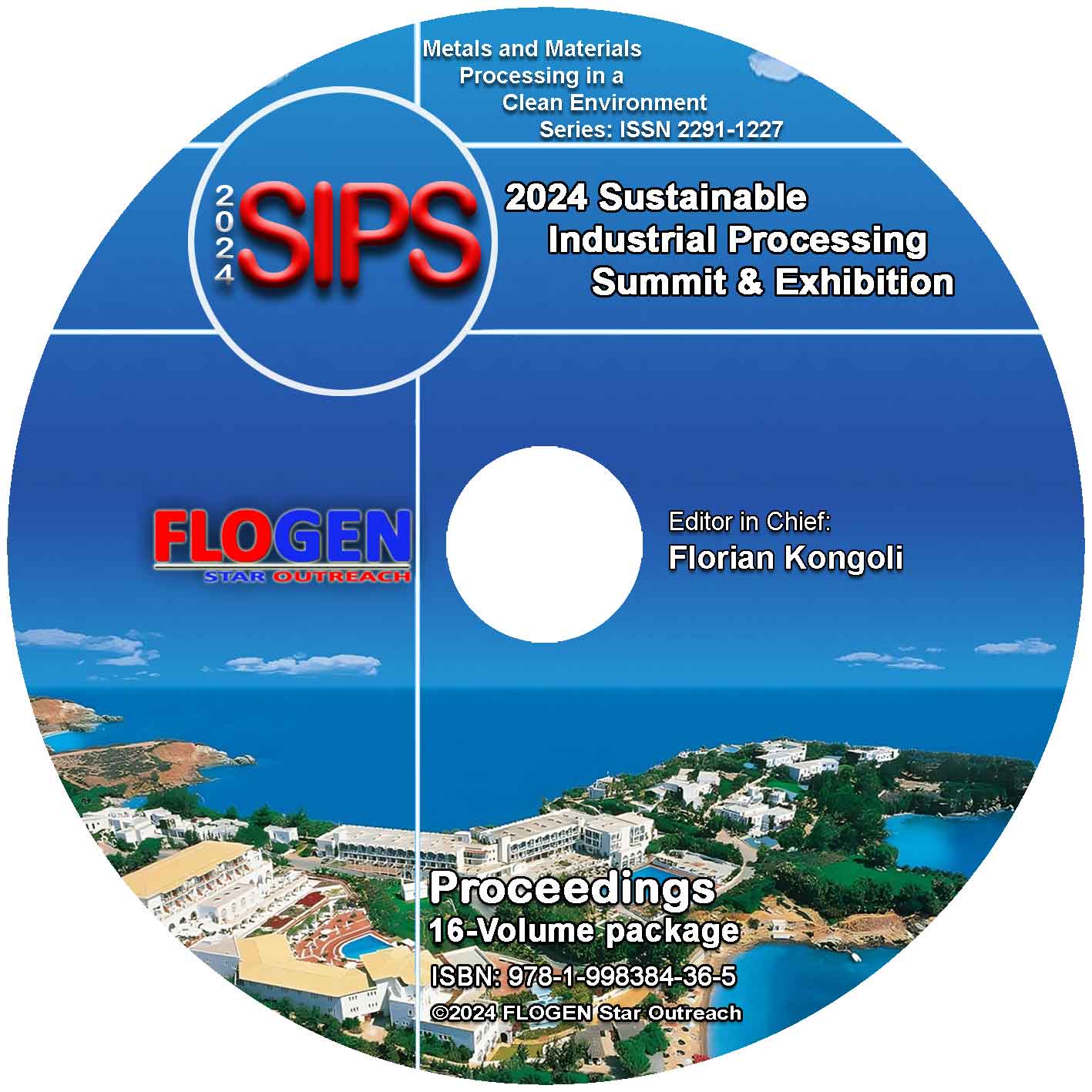2024 - Sustainable Industrial Processing Summit
SIPS 2024 Volume 2. Anastassakis Intl. Symp / Mineral Processing
| Editors: | F. Kongoli, L. Andric, K. Aravossis, V. Chanturiya, I. Chatjigeorgiou, D. Fuerstenau, C. Kavalopoulos, C. O'Connor, V. Panayotov, J. Rubinstein |
| Publisher: | Flogen Star OUTREACH |
| Publication Year: | 2024 |
| Pages: | 384 pages |
| ISBN: | 978-1-998384-06-8 (CD) |
| ISSN: | 2291-1227 (Metals and Materials Processing in a Clean Environment Series) |

CD shopping page
HYDROGEOLOGICAL CONDITIONS AND SUSTAINABILITY CHALLENGES IN THE MESSARA BASIN, CRETE
Ioannis Michalakis1;1HELLENIC SURVEY OF GEOLOGY AND MINERAL EXPLORATION, Acharnes, Greece;
Type of Paper: Plenary
Id Paper: 493
Topic: 5
Abstract:
This study presents the primary results from field campaigns conducted in the Messara Basin, Crete, emphasizing the hydrogeological conditions and sustainability challenges in the region (Pictures 4-14). Geological maps at scales of 1:50,000 and 1:200,000 (Pictures 1-2) were foundational in understanding the basin’s geological framework and were used for hydrolithological classification, providing a detailed analysis of the hydrolithological characteristics linked to the region's geological features. Groundwater levels in the basin exhibit significant seasonal variations, largely due to over-exploitation for irrigation, raising critical sustainability concerns. Effective groundwater management requires systematic data collection and precise utilization of primary data (Picture 3). Despite the involvement of various authorities in localized groundwater management, the absence of a comprehensive, large-scale framework hinders the creation of a detailed master plan. Addressing this gap necessitates systematic fieldwork aimed at delineating the boundaries of groundwater systems.
The lack of a detailed hydrogeological map complicates the management of the region’s essential groundwater resources, which are crucial for irrigation. Changes in groundwater head were studied, identifying areas of generalized groundwater depressions, with maximum changes analyzed from May 2021 to October 2023 (Pictures 6-10). Additionally, data from the European Ground Motion Service (EGMS) were analyzed to detect induced land subsidence in the basin (Pictures 11-12). These findings were combined with areas of groundwater depressions for further investigation. The recent poor hydrological conditions over the past four years have exacerbated the sustainability crisis, posing significant economic and social challenges to the future of the Messara Basin.